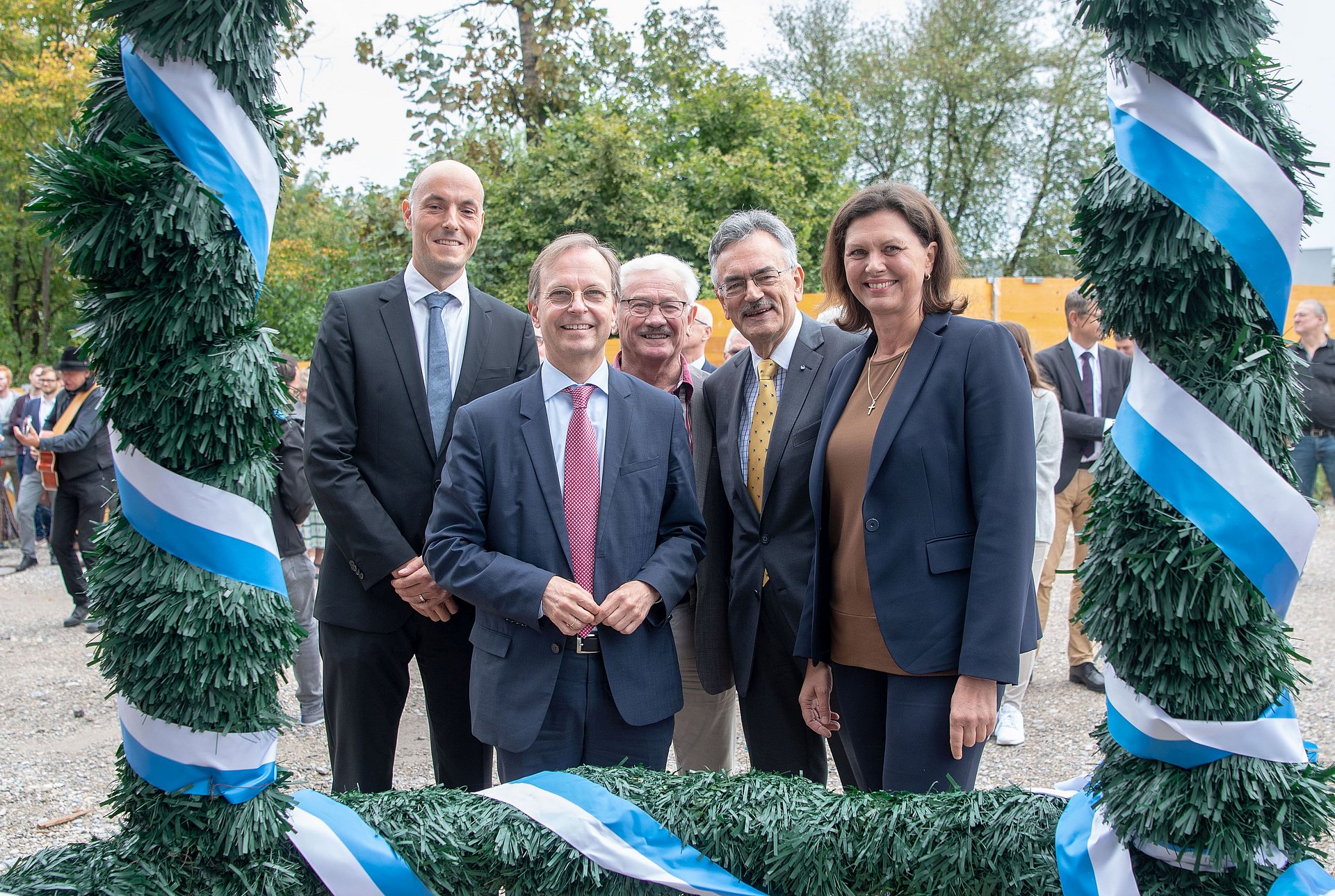Topping-out ceremony for new biomedical research center
Top-notch protein research

Over an effective space of about 4,000 square meters and with about 100 employees, the "TUM Center for Functional Protein Assemblies" unites the competences of TU Munich in the fields of protein chemistry, structural elucidation, chemical biology, single molecule biophysics, cellular biophysics, DNA nanotechnology, molecular dynamics simulation and bioengineering. Interdisciplinary biomedical applications will be developed to treat diseases caused by disturbances in the interaction of biomolecules, including Alzheimer's and diabetes. The construction costs of 40 million euros are shared by the federal government and the State of Bavaria.
Integration of biomedical and scientific engineering research
With the construction of the new protein research center, TU Munich is pursuing a path that it has already taken with the establishment of the Munich School of BioEngineering and the TranslaTUM Cancer Research Center: Integrating scientific engineering competences into biomedical research. Other components of biomedical research at TUM are the new Bavarian Nuclear Resonance Center and the Multiple Sclerosis Center, which is currently under construction and financed by the Klaus Tschira Foundation.
"Fundamental research must not stop at invention, at publication. Scientists should work with partners, from the business world, for instance, on the road to innovation. This is what TUM stands for as an entrepreneurial university," says Wolfgang A. Herrmann. "The 'TUM Center for Functional Protein Assemblies' is comprised of eminent scientists from various faculties and will advance the research of complex issues through their mutual interactions."
Top-level research requires excellent framework conditions
Thomas Rachel, Parliamentary State Secretary in the Federal Ministry of Education and Research, emphasized that top-level research requires excellent framework conditions. Scientists consider in detail which locations are right for them, and they go where they can find the best laboratories and working conditions. The consideration of constructing research buildings is thus an essential one. At TUM, Rachel sees optimal conditions for discovering better disease diagnosis and treatment options.
Development of the research campus in Garching
Ilse Aigner, Bavarian State Minister of Housing, Construction and Transport and Deputy Prime Minister, acknowledged the importance of the protein research center for the expansion of the research campus in Garching in her speech. Excellent research needs a facility, and with 20 million euros the State of Bavaria is creating additional value with this building through the integration of different disciplines. Complex biochemical laboratories, physical measuring facilities, areas for theoretical research and facilities for highly specialized large-scale equipment could be made available.